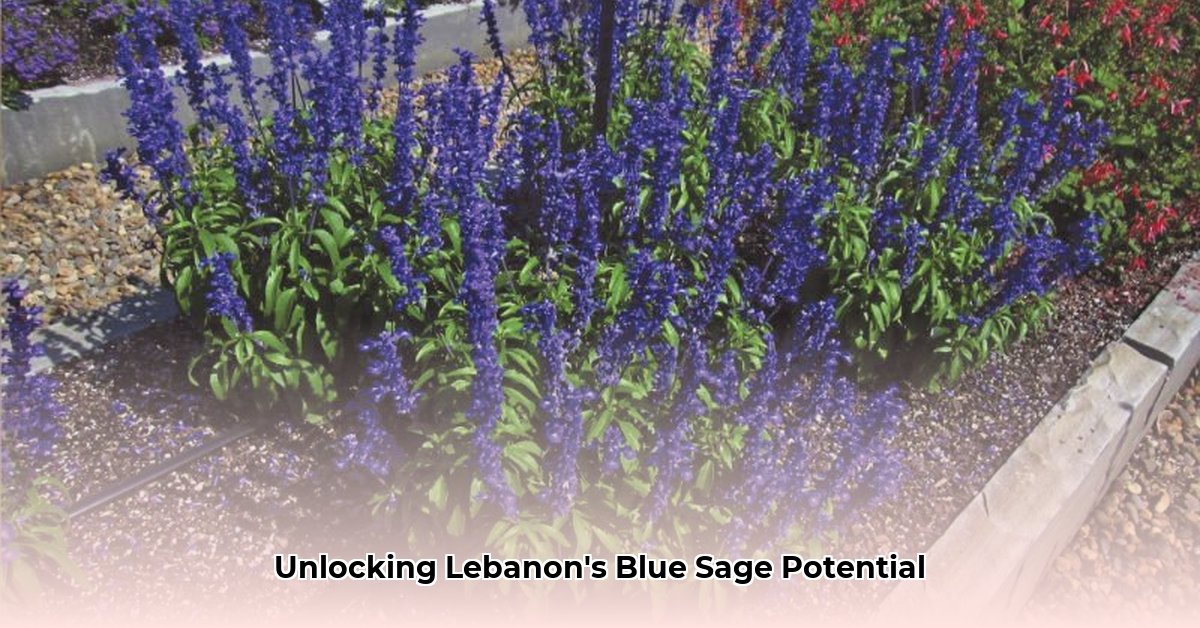
Imagine Lebanon, Missouri, a town experiencing a surge in tourism and, concurrently, the burgeoning cannabis industry. Blue Sage, with its two conveniently located dispensaries, sits at the heart of this development. But can strategic positioning alone ensure long-term success in this competitive market? This analysis delves into Blue Sage's current standing, identifying key strengths and weaknesses, and proposing a comprehensive growth strategy.
Navigating the Cannabis Market in Lebanon
The Lebanon, Missouri cannabis market presents substantial opportunities, yet it's also surprisingly competitive. While precise competitor numbers remain elusive, Blue Sage's reliance on frequent "deep deals" and "last-chance discounts" suggests a focus on price-sensitive consumers. This high-volume, low-margin approach, while effective in driving traffic, could strain profitability unless consistently high customer throughput is maintained. A critical gap in readily available data is a clear outline of Blue Sage's product range. The absence of detailed product information on their website hinders a complete assessment of their market positioning and competitive advantages. This lack of transparency is a significant weakness.
Do they offer a diverse range of products – flower, edibles, concentrates, topicals? This is crucial information for a thorough market analysis. A limited product range could be limiting their potential revenue streams and market share significantly.
Marketing Moves: A Balanced Assessment
Blue Sage's aggressive promotional tactics—frequent discounts—effectively attract impulse buyers. However, relying solely on price-driven promotions is a risky long-term strategy. A more nuanced approach is needed, one that considers seasonal tourist influxes and the unique needs of their customer base. Summer campaigns might emphasize unique tourist-oriented experiences, while local promotions could emphasize loyalty and community building. A diverse and targeted marketing approach, reducing reliance on price wars, is crucial for sustainable growth. This targeted approach should be data-driven to maximize ROI.
How can Blue Sage leverage its convenient location to better target tourists during peak season? What specific strategies can be employed to attract and retain local customers year-round?
Strengths, Weaknesses, Opportunities, and Threats (SWOT)
Blue Sage's strengths are its two convenient locations and competitively priced products. These are counterbalanced by weaknesses, most notably their minimal online presence. In today's digital age, a robust online platform is crucial for brand building and customer acquisition. Their current website lacks comprehensive product information, pricing details, and customer reviews, hindering their ability to attract and retain customers. This also impacts their appeal to potential investors.
Opportunities: The growth of the Lebanon cannabis market itself presents significant opportunities. Careful market research can reveal unmet customer needs and underserved market segments. Strategic expansion within Missouri is a logical avenue for long-term growth.
Threats: Increased competition, regulatory changes, and seasonal fluctuations in demand pose significant threats. Negative publicity, though less likely, could have a severe impact. Supply-chain disruptions also represent a potential risk to Blue Sage's operations.
Charting a Course for Success: Actionable Strategies
Blue Sage needs a multi-pronged strategy to leverage its strengths and mitigate its weaknesses. This should encompass both short-term and long-term goals.
Short-Term Goals (0-1 Year):
- Overhaul Digital Presence: Create a comprehensive website with detailed product information, high-quality images, pricing transparency, and customer reviews. This is essential for increasing brand visibility and driving online sales.
- Data-Driven Promotions: Develop a targeted promotional calendar based on market research, customer data, and seasonal trends. Segmentation and personalized promotions will improve ROI.
- Enhanced Customer Service: Implement rigorous staff training programs to ensure consistent, high-quality service and product knowledge. This is crucial for turning first-time customers into loyal patrons.
Long-Term Vision (3-5 Years):
- Product Diversification: Expand product offerings based on thorough market research to cater to a wider range of customer preferences and needs. Consider offering unique or premium products to differentiate from competitors.
- Customer Loyalty Program: Implement a loyalty program to reward repeat customers and foster brand loyalty. This could involve points systems, exclusive offers, or early access to new products.
- Strategic Expansion: Explore strategic expansion opportunities within Missouri or other comparable markets, carefully assessing each location's market potential and competitive landscape. Utilize data analytics to inform location selection.
- Data-Driven Decision Making: Invest in a comprehensive data analytics system to track sales trends, customer behavior, and market dynamics. Use the data to refine marketing strategies, optimize pricing, and manage inventory effectively.
Mitigating Risks: A Proactive Approach
The cannabis industry is inherently risky. A proactive approach to risk management is crucial.
| Risk Category | Likelihood | Impact | Mitigation Strategy |
|---|---|---|---|
| Increased Competition | Medium | Medium | Continuous product innovation, proactive market analysis, building strong brand loyalty, and strategic partnerships |
| Regulatory Changes | Medium | High | Close monitoring of legislative changes, proactive engagement with regulatory bodies, and lobbying efforts where appropriate |
| Seasonal Demand Fluctuation | High | Medium | Diversify offerings, year-round marketing campaigns targeting different niches, and potentially explore alternative revenue streams |
| Negative Publicity | Low | High | Maintain high standards, robust public relations, transparent communication, and crisis management planning |
| Supply Chain Disruptions | Medium | Medium | Diversify suppliers, establish strong long-term contracts with reliable vendors, and explore alternative sourcing options |
Blue Sage Lebanon has significant growth potential. Realizing this potential mandates a strategic realignment, focusing on enhancing its digital presence, adopting a data-driven approach to decision-making, and diversifying both its product line and marketing strategies. The future of Blue Sage depends on proactive adaptation and a commitment to continuous improvement.